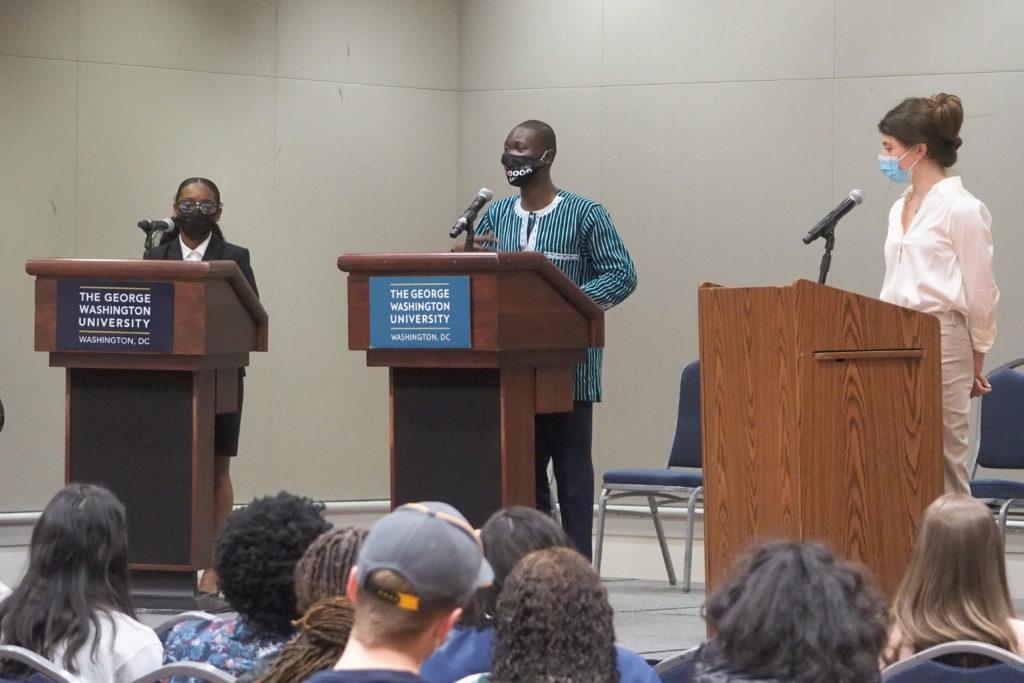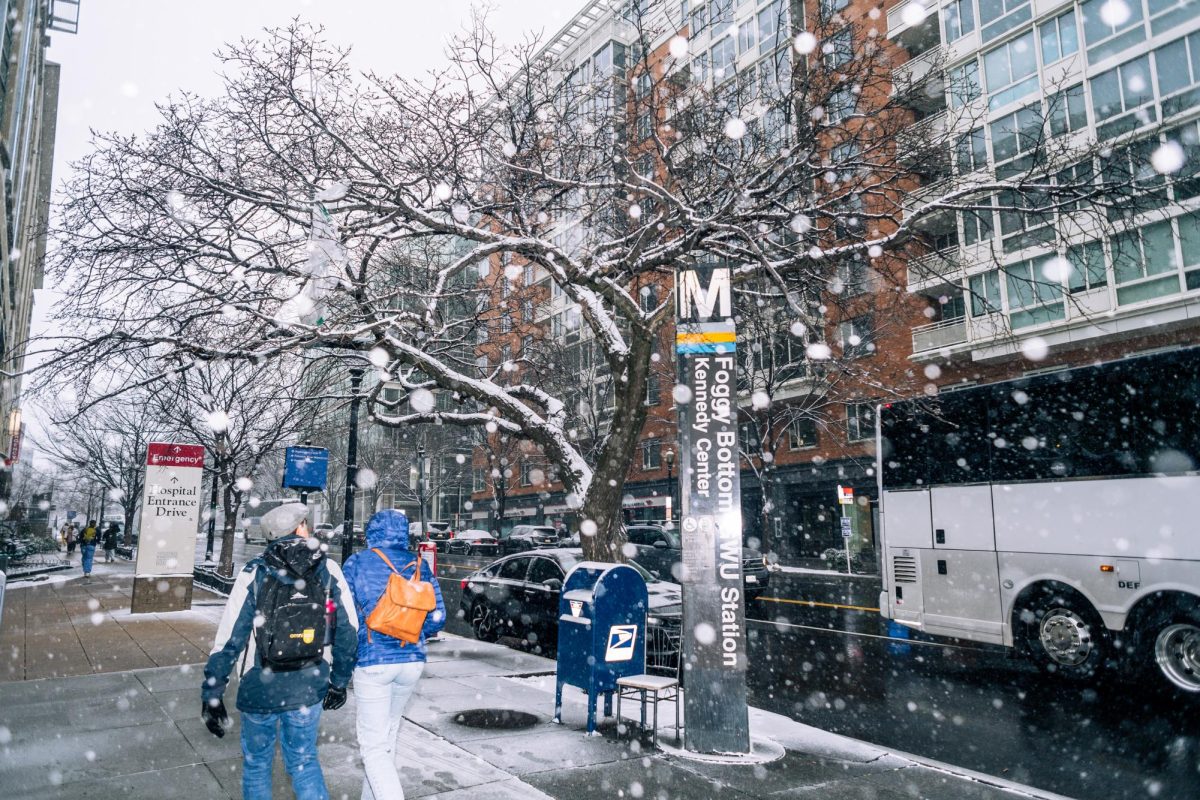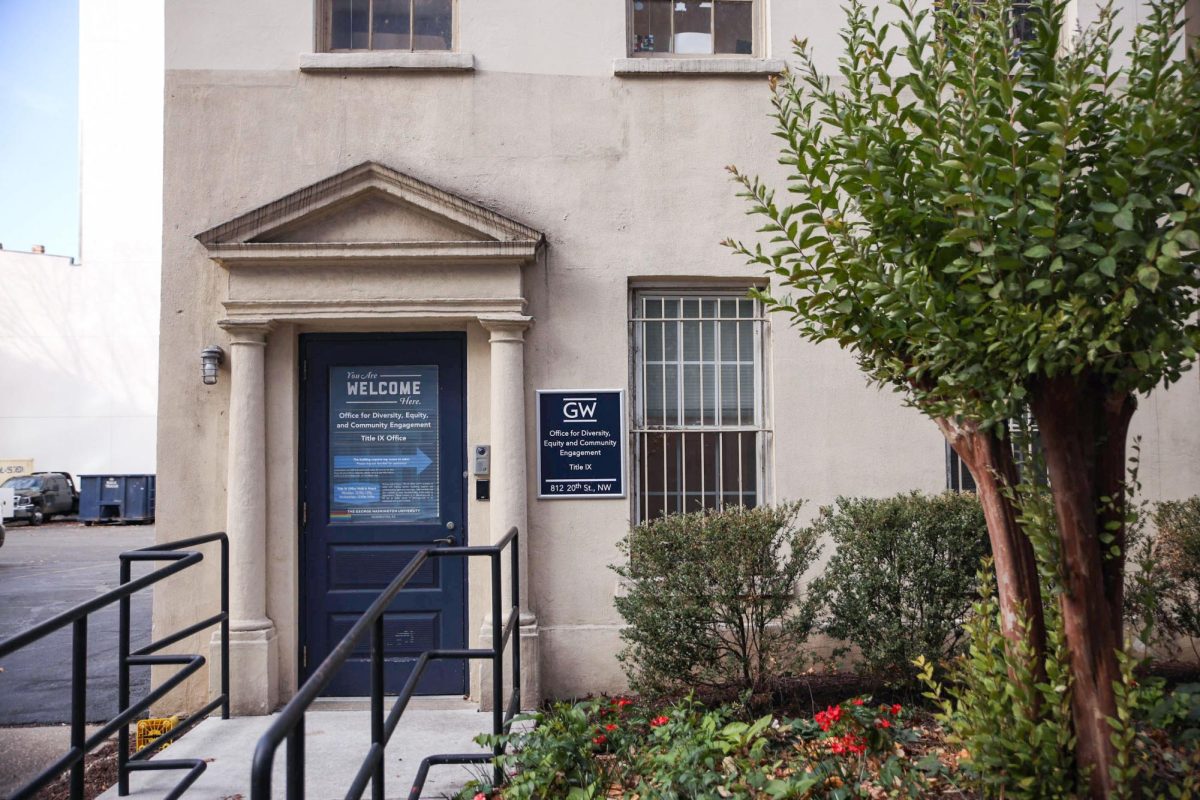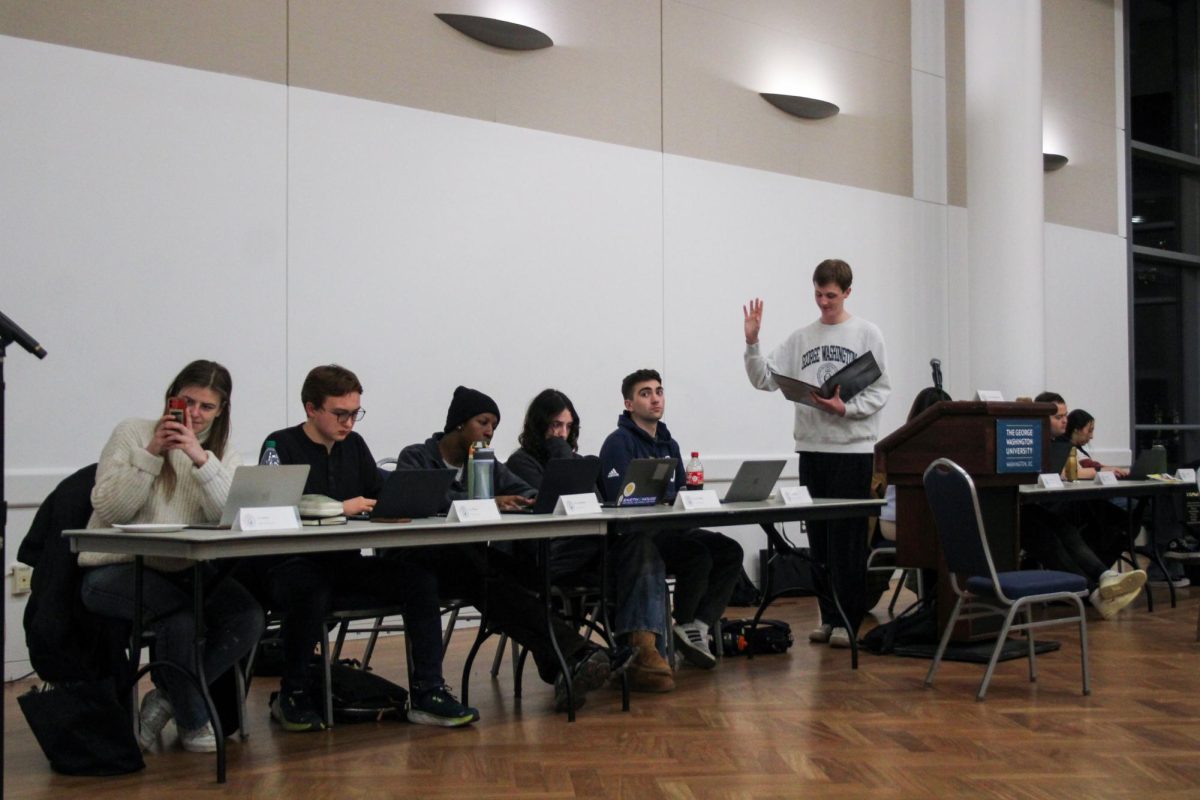More than 30 people gathered to hear the Student Association’s candidates for president and vice president advocate for their platforms and pledge to increase transparency within the SA during Sunday’s debate in the University Student Center’s Continental Ballroom.
SA Sen. Dasia Bandy, ESIA-U, and senior and three-time SA presidential candidate Christian Zidouemba discussed their respective policies and how they hope to bridge the gap between the student body and the SA. SA Sen. Yan Xu, ESIA-U, and SA Sen. Alfredo Granados, ESIA-U, debated how their respective backgrounds working in the SA will help them accomplish their goals.
Six senate candidates took the floor to give short remarks on their platforms at the debate, calling for measures like improved academic advising accessibility, more dining plan options and greater affordability.
Emmanuelle Dyer Melhado, who hosts Capital Crossfire for GWTV, moderated the vice presidential debate, and Lauren Sforza, The Hatchet’s student government editor, moderated the presidential debate.
This year’s campaign reached record-low engagement levels as fewer senate candidates are running this year than in any of at least the five most recent elections.
In case you missed it, here are some of the highlights from the debate:
Presidential debate
Bandy and Zidouemba faced off on issues like increasing student engagement with the SA and accountability and were asked to defend some of their top policies.
Bandy said she plans to work with the University’s service carrier to improve GWireless on campus.
GW Information Technology – a department that underwent a series of layoffs during the pandemic – faced an influx of support requests in the fall due to a slew of layoffs during the COVID-19 pandemic.
Bandy said amid record-low engagement in this year’s election, she plans to reignite engagement with the SA by holding a meeting with all student leaders on campus together during the first week of orientation.
“We need to start with what we have and the tools that are accessible to us, and the first tools that are accessible to us are our student leaders,” she said.
Zidouemba said he wants to collaborate with the Center for Career Services to consolidate resources particularly for freshmen and international students. He said he plans to use his platform as president to bring in high-profile members of organizations like Deloitte and the International Monetary Fund to hold more networking events.
“I remember vividly when I first got to The George Washington University, every time I asked a senior, ‘What’s your next move?’ the [answer] I usually get is ‘I don’t know,’” Zidouemba said. “To me, that’s everything when you pay $75,000 to go to The George Washington University.”
He said he plans to be available to students, should they have concerns about his work as president.
“If I get elected to become your president and you see I’m not doing something right, you have that obligation to come to my office or make a poster, rally your friends to be able to make those changes,” he said. “I think that’s one way to be able to make change in our university.”
Vice presidential debate
Xu discussed how his experience as SA finance chair working with student organization leaders and negotiating with administrators for more student organization funding has prepared him to advocate for students as vice president.
“By doing this job in a minimum level I must interact with all the administration,” he said. “That really brings me knowledge of how this university’s system works and how the bureaucracy works.”
Granados said the SA has lacked “effective outreach” to the broader student body and has instead been “drowned in an internal drama loop” with several lawsuits this year.
“I’m here as an advocate of the student orgs I have met with that have received the impact of its lack of effectiveness from funding cuts to regarding discrimination as an afterthought, and many other things that I can save because we have been affected by the actions and inactions of the Student Association,” he said.
Xu and Granados sparred over Granados’ absence at last week’s senate meeting, during which senators voted on three referenda – one to amend the SA Constitution to align with “current financial practices,” and two others asking students to expand the powers of the SA’s judicial branch and fill senate vacancies.
Xu said Granados missed the meeting for a “campaign activity,” and his presence at the meeting could have saved a referenda asking the student body to allow the senate to fill vacancies through special elections and appoint non-voting delegates from “underrepresented” groups, like freshmen on campus – which he said failed by one vote.
“I want to say that I’ll always be there for students and student organizations,” Xu said. “They know where to find me and I’m going to be accounted for being there for them.”
Granados said he was not at a “private rooftop party” as Xu implied but a “get together” with organizations like Black Student Union and GW Hillel to discuss initiatives he would work on if elected as vice president.
“It makes me really sad that we need to turn this personal, but I will respond to it,” Granados said.








